Hero of Labor and Distinguished Teacher Le Cong Co affirms that today’s peace was bought with the blood of millions, and that the younger generations must remember to show gratitude and pick up the torch.
The independence and freedom we have today were paid for with millions of lives. In an interview with Tri Thuc & Cuoc Song, Hero of Labor and Distinguished Teacher Le Cong Co emphasizes that the younger generations must be thankful of the past, nurture their patriotism, and continue the work of building the nation.
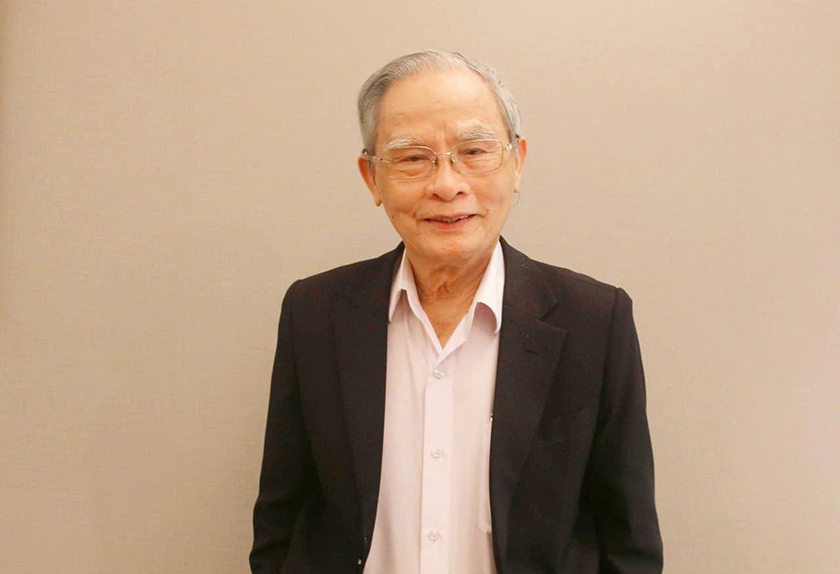
Hero of Labor and Distinguished Teacher Le Cong Co. Photo: Mai Loan
Price of independence was the blood of millions of lives
Reporter: Your childhood was marked by extreme poverty. You then joined the revolution and faced many life-or-death situations. Today, as the country celebrates the 80th anniversary of the August Revolution and national day on September 2, what are your feelings?
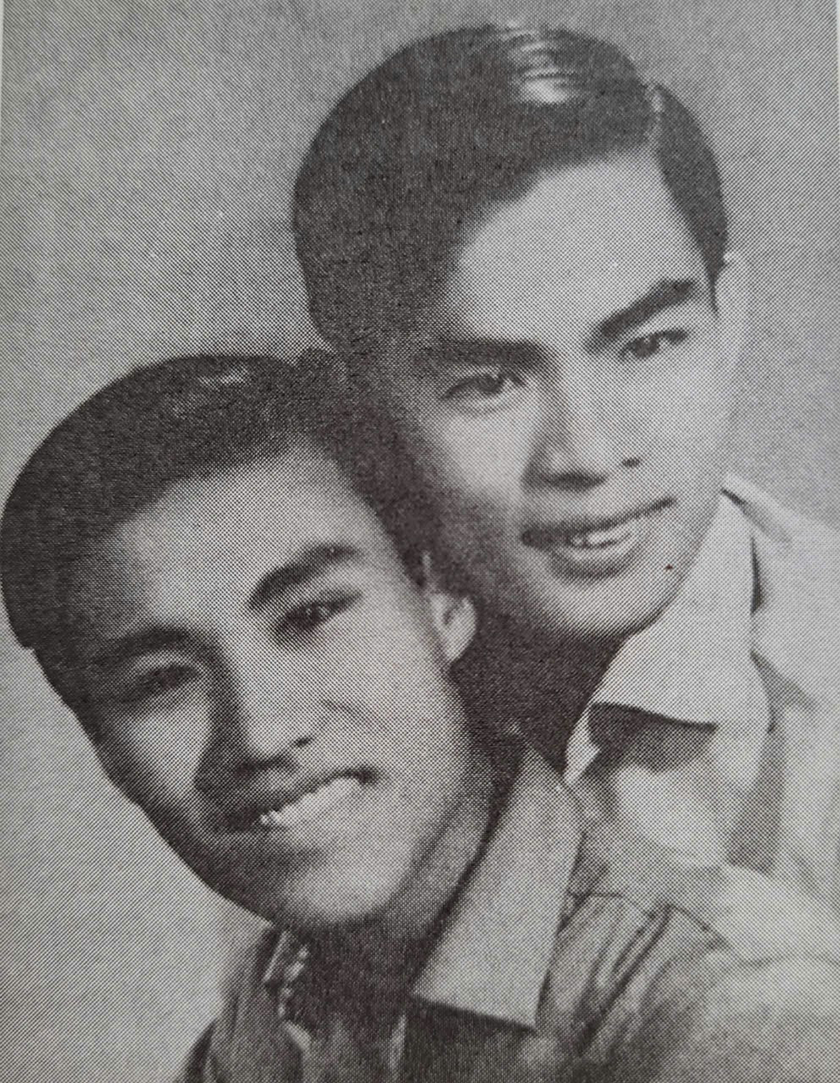
Hero of Labor Le Cong Co (right) and Son Hai (Nguyen Van Son), who was killed
in 1968 while in charge of the Quang Tin province student and youth liberation forces. Photo: provided by subject
Hero of Labor Le Cong Co: I’m 84 this year. Looking back on my life, I have a lot to reflect on and I have drawn one lesson: time gives us experience, books give us knowledge.
I joined the army when I was ten and I’ve been with the revolution ever since. I worked as a liaison in the forces fighting the French colonists for three years. When I was thirteen, I was assigned to Saigon as a liaison for the city Party committee. In 1957, when I was just sixteen, I was admitted to the Youth Union. At the time, I had to earn a living, took part in the revolution, and taught myself all at the same time.
My studies had a clear purpose: to serve the revolution, to liberate the nation, and to liberate myself. The person who admitted me to the Union also reminded me: “Study hard to be able to rally others.” In the South back then, if you didn’t study well, it was next to impossible to get people to listen to you.
I only had six and a half years of formal schooling, but life taught me a huge lot. The school of life made me grow up and made up for my lack of schooling. In 1960, I went to Central Vietnam to build the movement; I handled everything on my own.
Looking back, I find that I did contribute to the revolution: I organized a wide network, from intellectuals, lecturers, teachers, and students to monks and priests, counting more than 520 bases. Those were the cores that in part sparked the great movements of 1963 and 1965, and eventually the uprising that liberated Hue in 1975.
I was attached to Hue for 16 years. I trained many cadres, many of which later rose to prominence. Looking back, I feel I did something useful when I was young - my youth wasn’t wasted.
After the liberation, I devoted more than 31 years to building a university. I went from empty-handed to now over 1,620 lecturers and 40 thousand students. It was the first Vietnamese university to be ranked among the world’s top 500. I feel that I have done something useful for life.
My motto is: “Live healthily to work healthily; live a useful life and live happily.” I exercise three hours every day and maintain an optimistic spirit. Looking back, I see that life is fleeting and only our contributions to life endure.
That’s why I always remind myself that today’s students must be educated to have a motivation for learning connected with a love for their country. Those two cannot be separated. Vietnam belongs to us, and the price of independence was the blood of millions of lives.
Creating a university to repay debt to fallen comrades
Reporter: As someone who experienced the resistance wars and faced many life-or-death situations, how do you value peace and independence?
Hero of Labor Le Cong Co: September 2 is deeply sacred to me. I’ll never forget 1969; I was on the battlefield in Thua Thien Hue when it was at its fiercest, and we heard that Uncle Ho had passed away. I had never met him in person, but his picture was the banner that rallied the whole nation against the French, and then against the Americans. He founded the Democratic Republic of Vietnam and he devoted his entire life to his nation. When we learnt of his passing, the entire unit was overcome with emotion and we cried without end. The people of ethnic minorities even asked us, “Uncle Ho died, who’ll fight the Americans now?” That just shows how profound the people’s trust and love for him was.
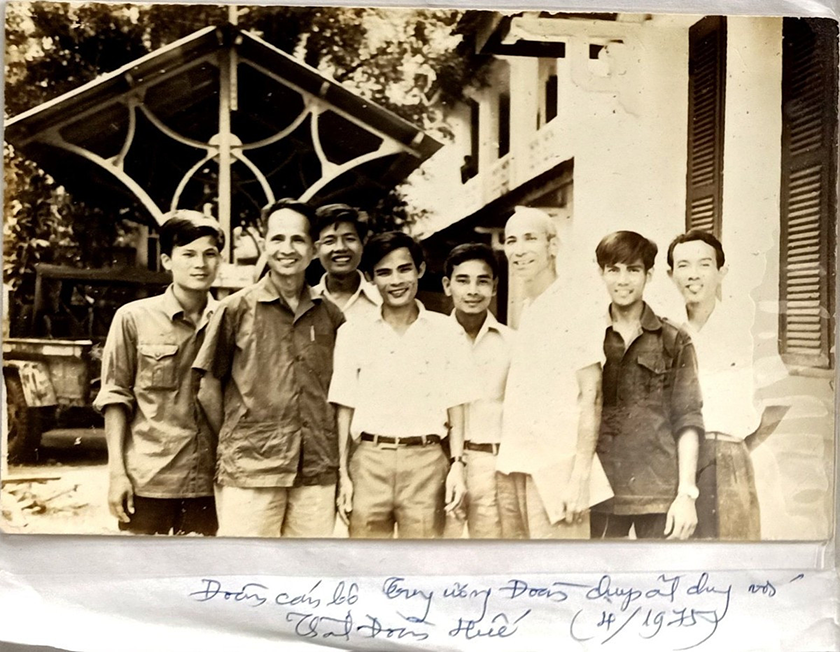
Hero of Labor Le Cong Co (fourth from left) with the Central Youth Union
delegation and members of the Hue Youth Union, April 1975. Photo: provided by subject
September 2 is also the day that affirms that our people has an independent Vietnam, free from servitude. Uncle Ho called on us to fight the enemies that are hunger, ignorance, and the foreign invaders - starting from the smallest of tasks to awaken the nation’s strength. That call created a tremendous driving force that allowed Vietnam to get through its darkest years.
Today, it’s been 80 years since the founding of the country and 50 years of peace. But in those 50 years, we had to fight for 10 more years along the northern and southwestern borders. Only the last 40 years or so can really be called fine. Yet the after-effects of the war are immense and even now haven’t been fully resolved. I once returned to Binh Dien, Phu Bai, where my unit fought eight battles in just three years. Many of my comrades died when they were just 17 or 18 - most of them young men from the North: Quang Binh, Nghe An, Thanh Hoa. They were too young and inexperienced in battle, and they fell very quickly. Many bodies were left behind in the forests; no-one buried them or even searched for them.
That’s why, after my return, I felt that as I was alive, I had to do something to repay my comrades. My lifelong devotion to education stems from that very belief. I built a university with all my enthusiasm, as a way of living instead of the fallen and carrying forward their work. I live on campus with my colleagues, working and doing all I can, and I think that, if I were to die, I’d die there as well.
Reporter: Why did you choose the path of education rather than any other field?
Hero of Labor Le Cong Co: Because I believe education is the core, the only path that can bring change to the country. My hometown was also the birthplace of Phan Chau Trinh, who launched the Duy Tan movement in 1906 with the philosophy of “educating the people”. One must educate the people and teach them literacy to strengthen the nation’s spirit and improve its livelihood. Uncle Ho also said: “Eliminate ignorance first, then raise the people’s spirit and improve their livelihoods.
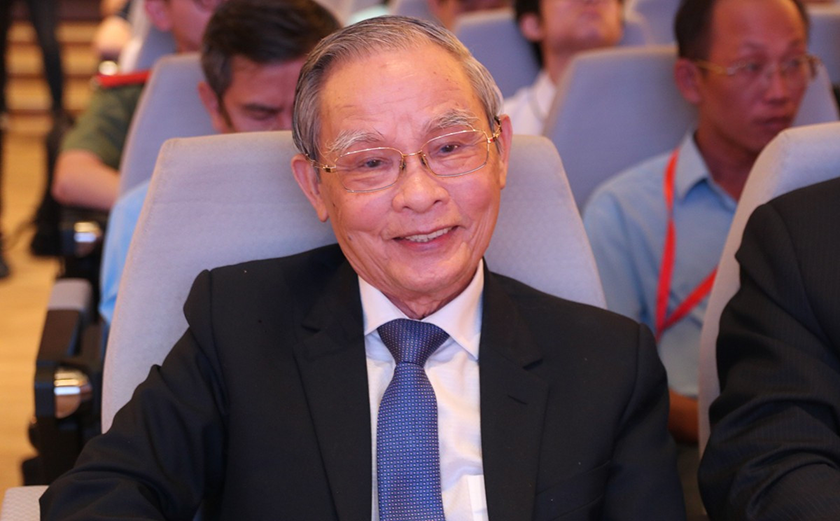
Hero of Labor and Distinguished Teacher Le Cong Co at the closing ceremony
of the 30th Student Mathematics Olympiad hosted by DTU. Photo: Mai Loan
To establish the Duy Tan Private University, one of the very first private universities in Vietnam, I mortgaged the house I was living in, my only major asset at the time, and borrowed money from friends. For two long years, from 1993 to 1994, I made more than fifty train trips from Central Vietnam to Hanoi to campaign, persuade, and complete the procedures for opening the school. More than a few people had doubts, some even doubted my sanity. But I stayed steadfast in my conviction and my aspiration.
Reporter: When you succeeded, when you were awarded the title of Hero of Labor, when the university was acknowledged, how did you feel?
Hero of Labor Le Cong Co: I don’t think of it as a personal achievement, but as the result of a collective effort. Without my companions and colleagues, I couldn’t have done anything. This university came to be because everyone joined hands and was committed. I still remember the early days when lecturers and students had to walk to class in the rain, with no permanent campus, renting places here and there to teach and study.
That’s why today’s success belongs to the lecturers, staff, students, and even the parents. Without students, there’s no university; without the parents, it’s hard to get the students to come to us. I see it as a shared sacrifice with contributions from everyone, never as something I just brought about.
Nurture patriotism to build a developing nation
Reporter: Many people say that the patriotic spirit among today’s youth is not as strong as before. Yet, looking at the preparations for the national day celebrations on September 2, one sees that patriotism is still there, just expressed in different ways. What are your thoughts on this, and what message would you like to send to today’s younger generation?
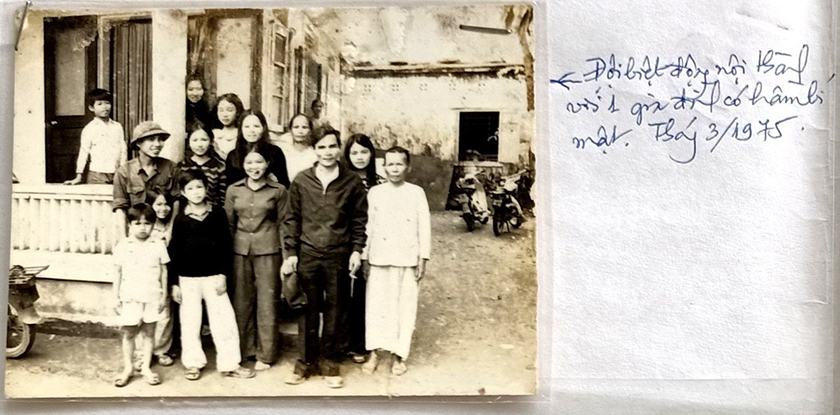
Hero of Labor Le Cong Co (third from right) with his Special Forces unit
and a family that had a secret bunker, March 1975. Photo: provided by subject
Hero of Labor Le Cong Co: I firmly believe that our nation will never allow itself to be annexed again. That’s certain. Each generation has its own way of expressing their patriotism, suited to their circumstances and their times. For today’s young people, the most important things are to study diligently, practice, and be grateful for the past.
At my university, every year we organize trips for lecturers and students to former battlefields, where they offer incense in remembrance, as a reminder to all to be grateful and be committed to something worthy. Today’s generation lives in an era of modernization and artificial intelligence, and they must embrace these trends. For us elders, it’s our duty to set a good example that young people can observe and follow to grow. I see many talented and capable young people, and the country needs to broaden opportunities and provide support to let them thrive. If they can master science & technology while also preserving their patriotism and passion, they will very quickly build a prosperous nation.
I always advise the younger generation: treasure your health and your time, for these are a person’s two greatest treasures. As we age, health declines; and time, once past, never comes back. You must take care of your health and manage your time to put it to good use. In one of my books, I also wrote this message: When you’re young, choose your career carefully, choose the right life partner, and above all, nurture your love for your country. Because only when you love your country will your choices and your contributions have true meaning.
Thank you very much!
(Media Center)